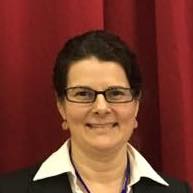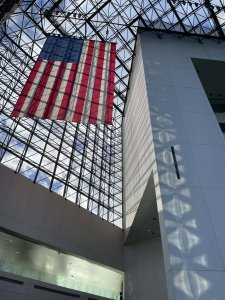Overall, I found this seminar to be incredibly useful and beneficial to me in more ways than I had ever imagined. I took notes throughout the program about these revelations and will share them in the below bullet points in order to complete my report.
- Working in this industry in higher education requires diplomacy skills and a calm temperament and that certainly came through in the seminar. Eleven international educators from all different backgrounds came together in a remarkably cohesive way to participate in the first Fulbright International Educators seminar in Taiwan. There were educators from private and public and large and small institutions all over the United States. The days were long and packed full of visits in this intensive two week program, yet no one ever argued and we worked together despite the fatigue of jetlag and the long days and being away from work and family. There was also a range of positions from Dean to Coordinator represented amongst the group but ego never played a factor throughout the program.
- Although knowledge of Chinese is not necessary for getting around Taiwan it certainly made things easier when ordering food or needing directions or a taxi. I also appreciated traveling with educators who had knowledge of Chinese and Chinese culture. Those educators also provided helpful insight on the Chinese perspective and relationship with Taiwan.
- In my role at NKU, I have not worked extensively with international exchange partners. Participating in this program taught me how to establish relationships with new and existing partners. The other educators taught me what types of questions to ask other institutions such as whether they offer dual degree programs, customized programs, summer courses and programs, how many courses are offered in English, research topics, etc. We also talked extensively about issues each of the U.S. institutions was facing on our campuses and within our offices and how we were dealing with them. I now have an extensive network of colleagues to go to in the future when I need assistance, advice, or resources to tackle challenges or new processes. It’s a field that is constantly changing and adapting to incidents at home and abroad.
- The schedule for the seminar was too packed which caused aggravation for the receiving institutions as well as the educators. The objective of getting a taste of Taiwan could be met with visiting fewer institutions. We were late most of the time for a variety of reasons including traffic, bathroom breaks, and running over from the previous visit. This caused the group to have less time with the next visit as well as causing the next institution to cut out parts of the agenda such as campus tours or causing them to rush through their presentations. The institutions I remembered the most were the ones we had time to share a meal or drink with and of course the College of Performing Arts. Their performance was outstanding and blew us all away. We also had time at this institution to chat with the ETAs and learn more about that program and their experience in Taiwan.
- Each receiving institution is valuable and offers something unique but I would recommend cutting down the list for the next group. This way the group could spend more time with fewer institutions and allow time to really get to understand them rather sorting through an endless pile of brochures once we return home and trying to recall any memory about a place. I would also recommend allowing another day in Kaoshiung. The short time we were there didn’t allow us time to familiarize ourselves with the city. Spending nine days in Taipei, I had a good understanding of the city and all it had to offer. Removing the overnight and visit in Kenting is one way to provide more time in Kaoshiung. The aquarium was a nice visit but not absolutely necessary to the mission of the seminar. The second way to add time to Kaoshiung is by cutting the tour in Tainan in half. It was very difficult to understand the guide and we didn’t need to visit so many places in the city in order to get an overview of its importance.
- The time we spent with the ETAs was very valuable. In addition to learning about a program I had never heard of before, I was able to gain insight into what these students valued about Taiwan as well as the benefits and challenges of the program. Although the Pre-History Museum was an informative visit, it did not allow sufficient time to interact with the ETAs. I would recommend a social event with the group such as sharing a meal or a drink with them instead of walking through a museum. I have already been promoting this program since I have returned.
- The support of the Fulbright staff was phenomenal. They went above and beyond to make this program run smoothly and without incident. They were always pleasant and helpful and had to deal with an incredible number of logistics throughout the program. They answered any questions we had and shared with us their knowledge and love for Taiwan.
- The Amba hotel in Taipei was excellent and I would recommend it for future programs. The location was perfect and near public transport; lots of shops, restaurants, and ATMs were in walking distance; there were free bottles of water in the room every day; free laundry machines, dryers, and soap were in the hotel; the front desk staff were very friendly and helpful arranging taxis or answering questions; the breakfast was a combination of western and Asian foods and it was very plentiful.
- All of the cultural visits in the program were valuable and I wouldn’t recommend changing any of them. In my free time I went to Longshan Temple, Taipei 101, and the Sun Yat-Sen Memorial. I would recommend all of them to future groups. I was at the Sun Yat-Sen Memorial on a Sunday afternoon. It was a beautiful way to see how Taiwanese families spend their free time together on the weekend flying kites, taking walks, and having a picnic.
- In terms of logistics, the dinner on March 10th after the NTHU visit should be modified. We were stuck in traffic for almost two hours trying to get back to Taipei. Either eating closer to NTHU and then going back to the city or having the last institution be in Taipei in order to avoid Friday night traffic would be preferable. All of the restaurants we ate at were all excellent. I appreciated having the opportunity to try the variety of foods that Taiwan has to offer.
- I knew very little about Taiwan before I left on the seminar, but I had it in my mind that Taiwan would be a smaller, safer, easier country to navigate and learn Chinese culture and language than China for our nontraditional student population. Going on this program verified this. I can now confidently promote Taiwan as an excellent option for students to go to study at one of our partner institutions-Soochow or National Chengchi. I was so pleased to be able to visit both institutions while on this seminar program. Not only do I hope to encourage more students to participate with one of our exchange partners, but I also will encourage faculty to lead short-term programs. I look forward to seeing our Taiwanese partners at NAFSA to find ways to promote student and faculty movement in both directions.
- I wanted to thank Dr. Vocke and everyone at Fulbright for accepting me into this program. It was an invaluable experience and everyone welcomed me as if I was a part of their family. I have returned to the States with a clearer and positive picture of Taiwanese culture and its higher education system and will gladly promote Fulbright and Taiwan in the future.
Managing editor: 梁彩玲
Post Views: 5,626





